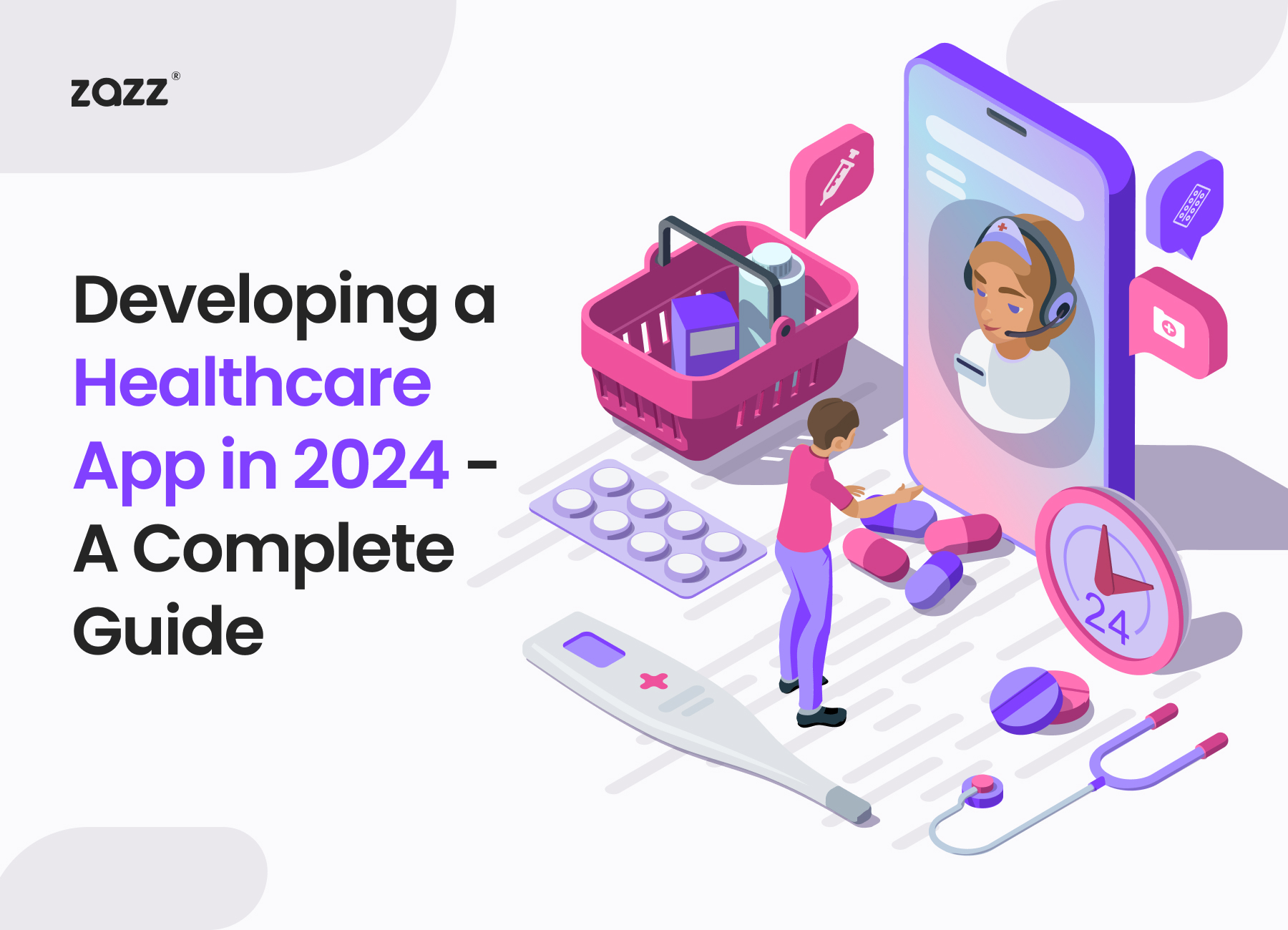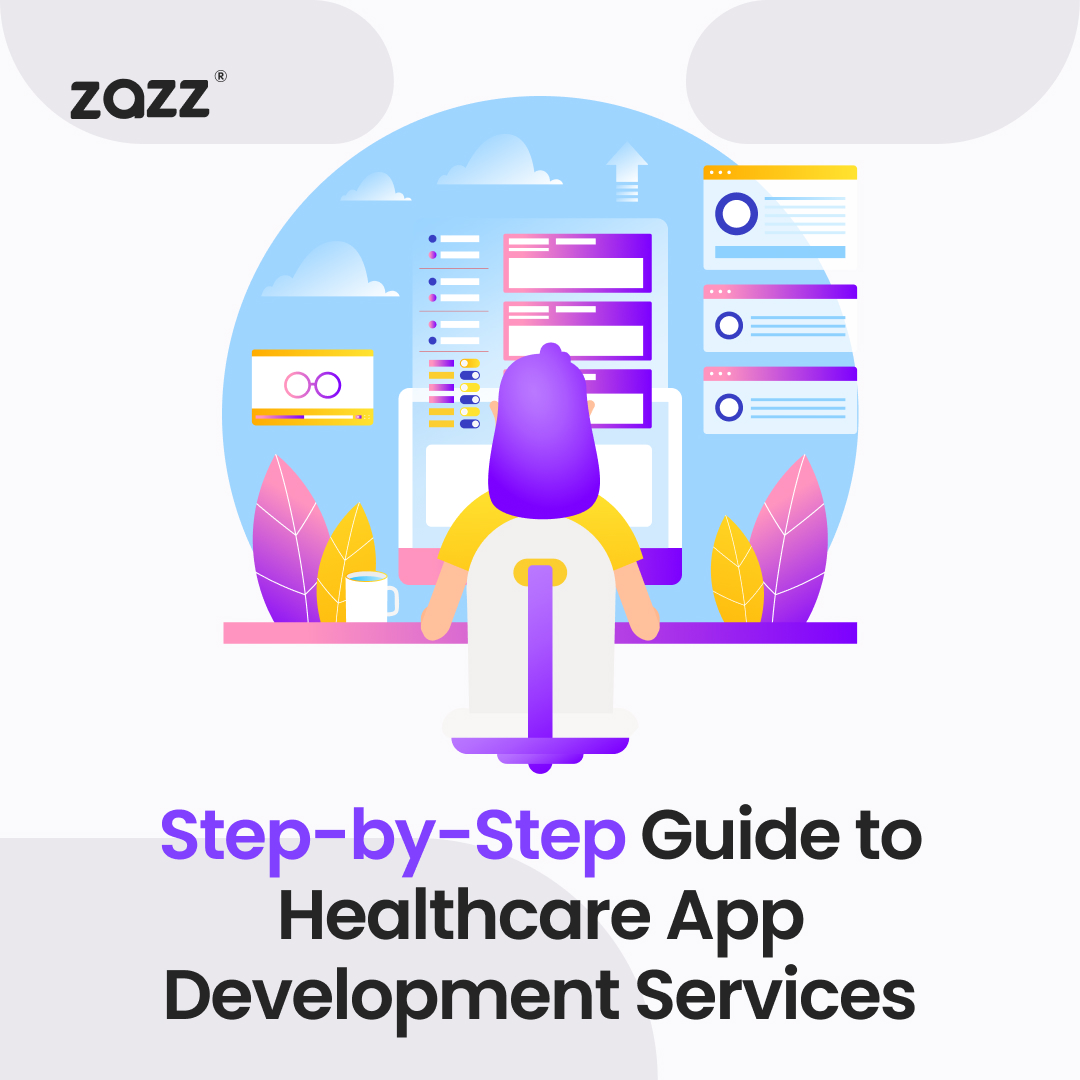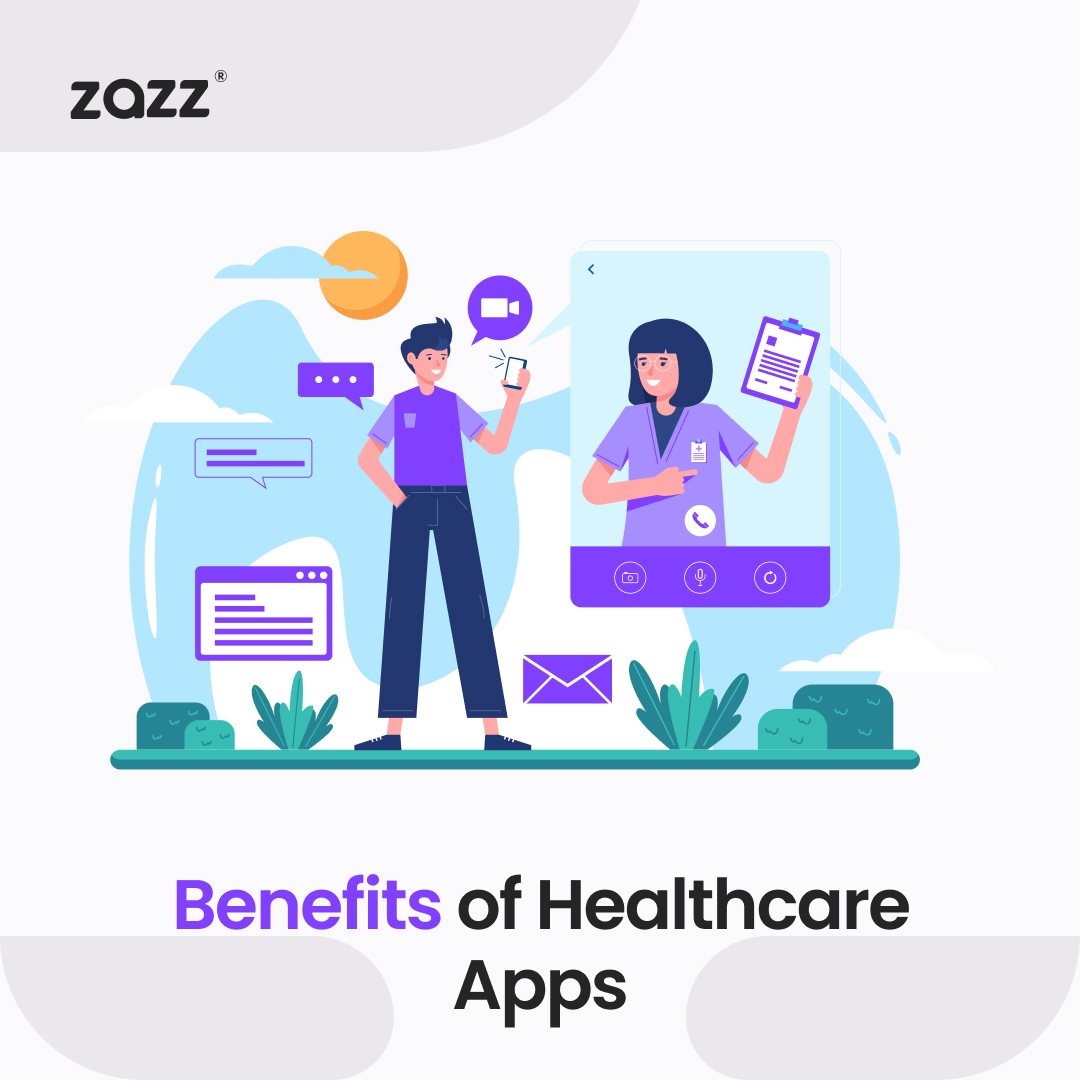
In recent years, the world has witnessed growth in technology, and with this, it has made a significant shift in the way healthcare services are provided or delivered. With increasing needs for medical help, healthcare apps have become an important tool in providing healthcare solutions.
These apps are user-friendly, accessible, and efficient. In this guide, you’ll walk through the step-by-step process of creating a healthcare app that can potentially revolutionize how people manage their health. This guide also talks about the types of healthcare apps and how businesses can outsource the app development to a healthcare app development company.
6 Step-by-Step Guide to Healthcare App Development Services

- Be Clear About Your Target Audience
Before creating coding and design, it’s important to have a clear vision for your healthcare app. For instance, how does it help people? What problem does it solve? Who is your target audience?
Moreover, it’s mandatory to make decisions. Whether it’s medication reminders, fitness tracking, or virtual consultations, understanding your app’s purpose will guide the entire development process.
- Plan the App’s Features and Architecture
Make a complete strategy for how the app will work and its features. Think about data storage, how the app will appear on a phone or tablet, and the special features your app can do.
Be sure of the availability of your app across several platforms and devices, such as smartwatches, tablets, iOS, and Android.
- Put Security Measures
Security is crucial because healthcare data is sensitive. Follow strong security measures such as secure authentication, encryption methods, and recurring security audits. Update your program frequently to fix any potential flaws and bugs.
- Check Carefully
Test your software thoroughly before releasing it and address the problems that the app might have, such as bugs, malfunctions, and usability problems. Think about conducting usability testing with the target audience and taking feedback for further improvement. This act will help you fill the gap between what the audience needs and your services.
- Get Mandatory Certifications
If your healthcare app uses medical data or services, then it needs to have certifications. To get the required certifications and permissions, appropriate healthcare authorities need approval.
This is a critical step that helps to prove the legality and credibility. It will help build trust with the audience.
- Launch and Market Your App
Once your app is all tested and certified, it’s time to launch your healthcare app! Hire a marketing strategist and develop a marketing strategy to create awareness and attract the target audience.
To connect with the potential users, you can use various social media platforms, such as
- Healthcare communities
- Groups on social media
- WhatsApp, and more
Moreover, keep updating and improvising the app to stay ahead of the competition.
Types of Medical Applications
If you search for different medical solution apps on the phone available today, you’ll see many options centered around three audiences: patients, healthcare providers, and the administration.
Read on to learn different types of medical apps:
- Patient-Centric Medical Apps
Health Monitoring Apps: These apps are designed for patients who want to track and monitor various health parameters such as heart rate, blood pressure, sleep patterns, and physical activity.
- Medication Management Apps
These apps help you set reminders for medication doses.
- Telemedicine Apps
Telemedicine apps offer an easy way for individuals to consult for medical advice, discuss symptoms, and receive prescriptions online at home without any discomfort.
- Wellness and Fitness Apps
These apps offer nutrition advice, fitness routines, and mental health support to help users maintain their healthy well-being.
- Medical apps for healthcare providers
Electronic Health Record (EHR) Apps: Designed for healthcare professionals, EHR apps allow easy and secure access to patient records and data. This enables smooth functioning and management of medical information and treatment plans.
- Medical Education Apps
These apps provide medical providers with access to educational resources, research articles, and updates on medical advancements that help in professional development.
- Communication and Collaboration Apps
Facilitating seamless communication among healthcare teams, these apps allow professionals to share patient information securely, coordinate care plans, and collaborate on complex cases.
- Medical Apps with Hospital Management Apps
Apps for billing and coding: The process of billing and coding becomes simpler with these apps, which assist healthcare administrators in effectively managing the financial parts of their business and revenue cycle management.
Benefits of Healthcare Apps

Healthcare app development provides various benefits not only to patients but also to doctors and healthcare providers.
Here are some advantages:
Advantages for Doctors
- Quick Decision: Doctors will get to know more about the patient and come to a conclusion in less time. This will help the doctors cover more patients more carefully.
- Better Diagnosis: Better treatment, timely healthcare delivery, and better outcomes are all benefits of the healthcare app.
- Less Stress and Burnout: Software helps doctors with small tasks, increases efficiency, and saves a lot of time.
- Improved Consultation: Doctors connect for consultations regardless of their location with the help of healthcare applications.
- Lesser Cost: All these benefits give a greater advantage in the low cost of healthcare services.
Advantages for Patients
There are many benefits for the patients, too; let’s have a look at some of them.
- Higher-quality Care: With all the automation available to providers, patients can receive personal health plans that respect their conditions.
- Easy Access to Healthcare: Healthcare apps give easy access to certain things, such as fast delivery and remote consultations.
- Secure Payments: It provides you with an easy payment method during application development.
Healthcare app development services for a hassle-free app launch
Developing a healthcare app in 2024 involves careful planning, understanding your target audience, ensuring security, obtaining certifications, and effective marketing. These types of medical apps help patients, healthcare providers, and administrators.
As digital health solutions continue to redefine the industry, this guide equips stakeholders with the knowledge needed to navigate the dynamic and evolving realm of healthcare app development, fostering advancements that benefit global healthcare practices.
A healthcare application development company can help you develop a more efficient and accessible healthcare system, benefiting both providers and patients. Outsourcing app development is recommended for businesses as it reduces the efforts involved in the process, enabling them to focus on other goals. If you are also looking to create a healthcare app or want to know more about healthcare app development guide, feel free to contact us. We will be delighted to help you!
Frequently Asked Questions
Key trends include telemedicine and virtual consultations, wearable integration, AI and ML for personalized treatment, blockchain for secure data storage, and AR/VR for remote monitoring and patient education. These technologies are transforming healthcare delivery, making it more accessible and personalized.
Essential features include appointment scheduling, telemedicine consultations, electronic health records access, medication management, health tracking, personalized recommendations, and secure data storage. These features enhance patient care, improve accessibility, and ensure data privacy and security.
Zazz leverages cutting-edge technologies to develop innovative healthcare apps. We prioritize user-centric design, regulatory compliance, and robust security measures. Our approach includes integrating key features like telemedicine, AI-driven recommendations, and wearable device compatibility to create comprehensive healthcare solutions.
Healthcare apps must comply with regulations such as HIPAA to ensure patient data privacy and security. Developers need to implement robust encryption, access controls, and data protection measures. Staying updated with evolving healthcare regulations is crucial for maintaining compliance.
AI and ML can provide personalized treatment recommendations, analyze symptoms, predict diseases, and offer tailored health insights. These technologies can process vast amounts of health data to improve diagnostic accuracy, treatment efficacy, and overall patient care.
Challenges include ensuring regulatory compliance, maintaining data security and privacy, creating user-friendly interfaces for diverse user groups, integrating with existing healthcare systems, and keeping up with rapidly evolving healthcare technologies and regulations.
Zazz offers comprehensive healthcare app development services, leveraging our expertise in emerging technologies and industry trends. We ensure regulatory compliance, implement robust security measures, and focus on user-centric design. Our team can help you navigate the complexities of healthcare app development, from concept to deployment and ongoing support.
Developing a healthcare app in 2024 is crucial to meet the rising demand for accessible and personalized health solutions, addressing current health challenges and enhancing overall well-being.
Primary steps in healthcare app development include defining the target audience, planning features, ensuring security measures, thorough testing, obtaining necessary certifications, and strategic app launch and marketing.
Trending technologies for healthcare app development in 2024 include Artificial Intelligence (AI), Blockchain, Internet of Things (IoT), and Telemedicine, providing advanced features for improved user experience and healthcare services.
Recent Articles
Table of Content 1. What is IT Staff Augmentation? 2....
Table of Content 1. What is Staff Augmentation for App...
Table of Content 1. What is IT Staff Augmentation? 2....












